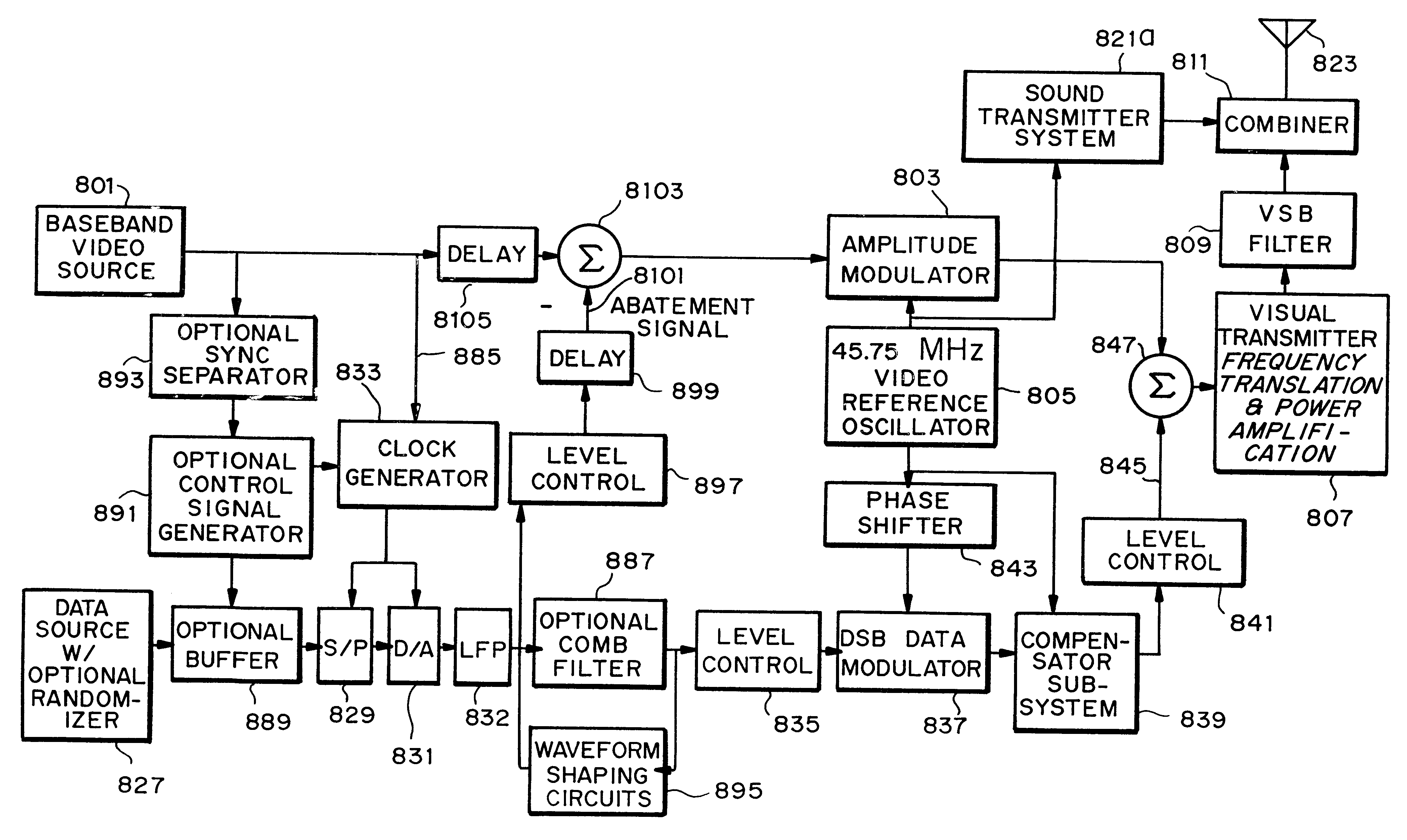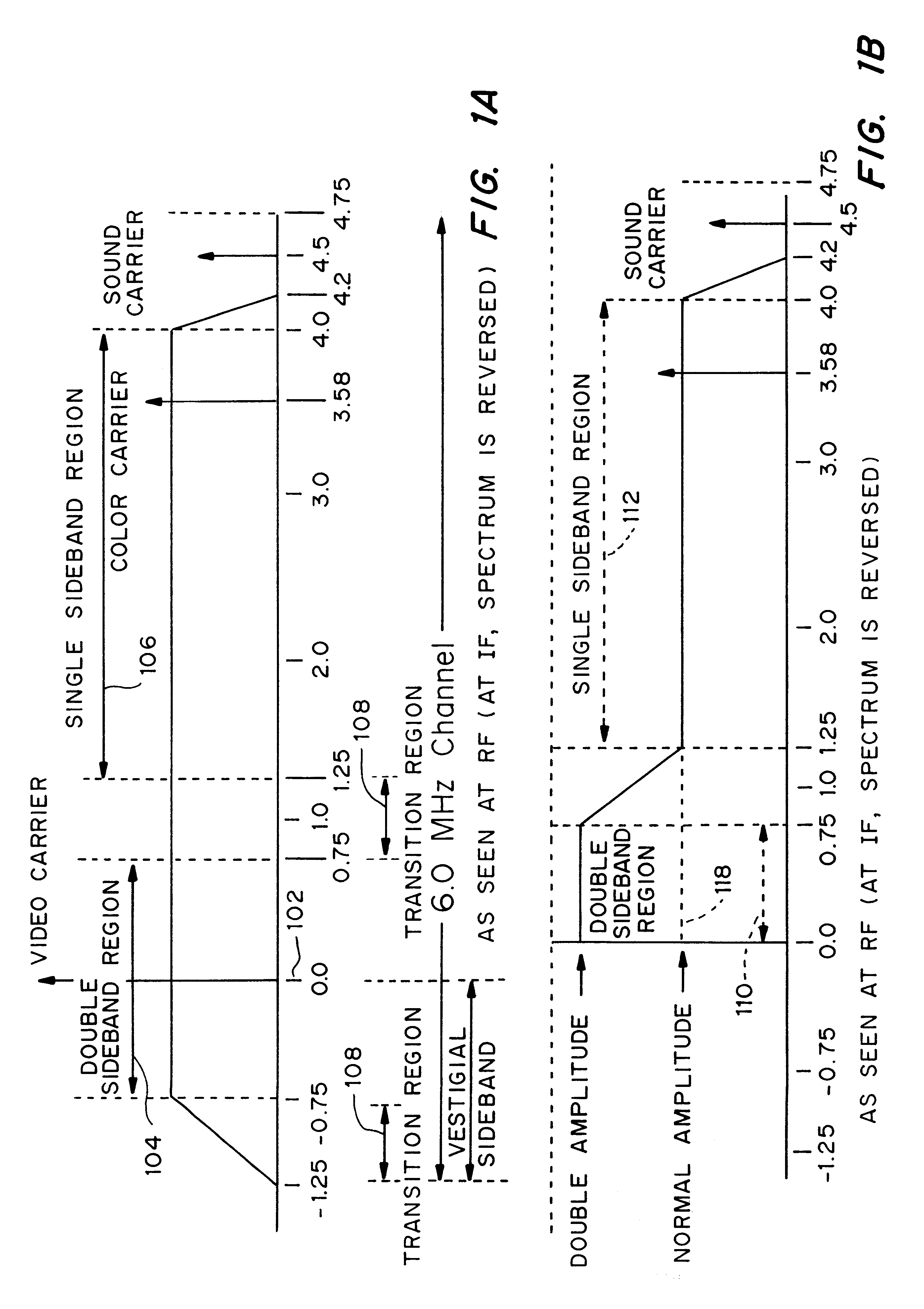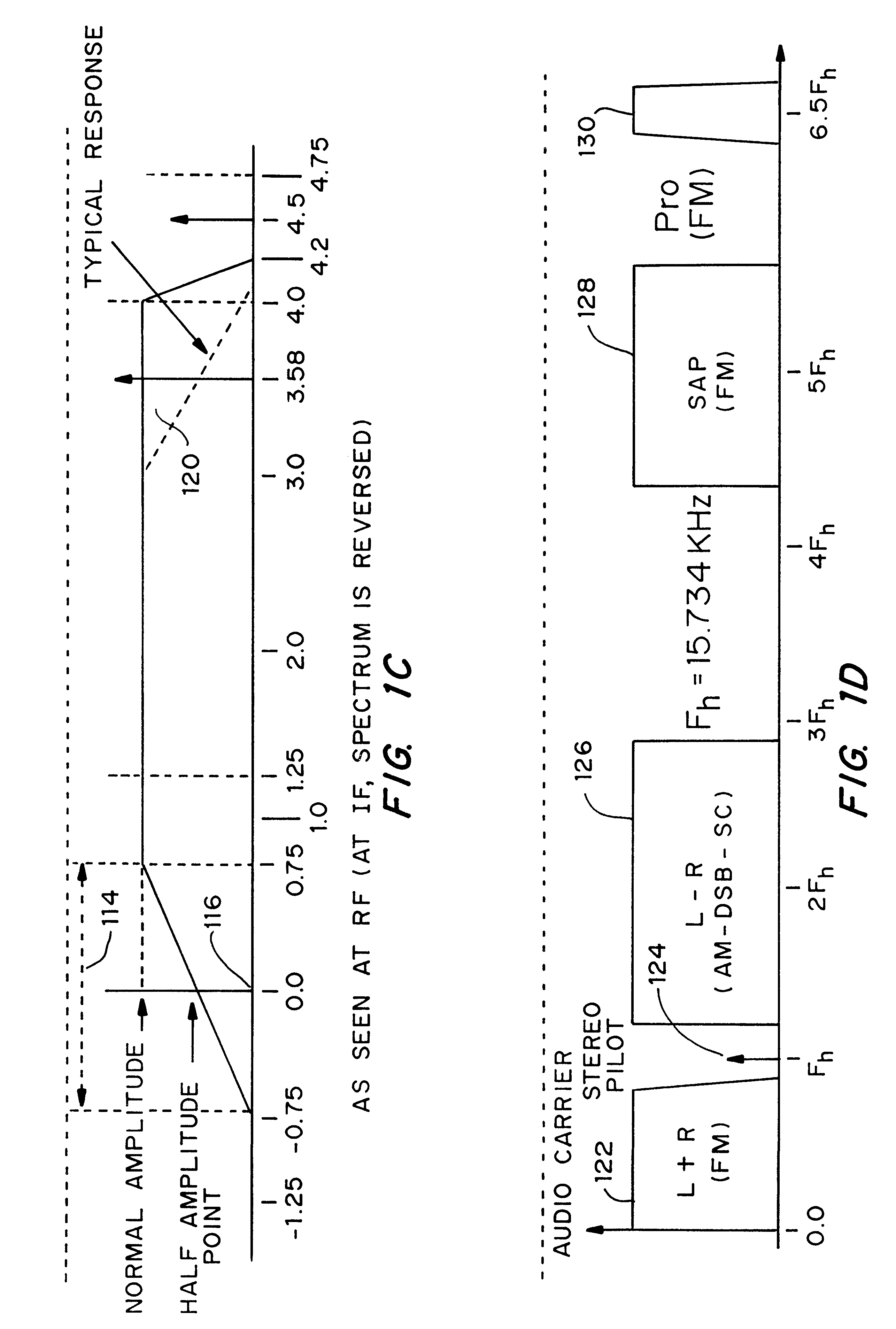Expanded information capacity for existing communication transmission systems
a technology of communication transmission system and information capacity, applied in the direction of television system, selective content distribution, modulation, etc., can solve the problems of reducing video quality, reducing the visibility of video, and reducing the use of wavephore system for splicing data
- Summary
- Abstract
- Description
- Claims
- Application Information
AI Technical Summary
Benefits of technology
Problems solved by technology
Method used
Image
Examples
Embodiment Construction
: The present invention's data signal is double sideband amplitude modulated onto an optionally suppressed carrier which is in quadrature phase with the picture carrier. If both the video signal and the present invention's signal were normal double sideband, they could be separated with synchronous detectors by conventional methods. Since the television signal is not all double sideband, but vestigial sideband, a television receiver includes a Nyquist slope filter to properly weight the upper and lower video sidebands around the carrier so that the correct amplitude is available for detection. In the course of its normal functions, this filter would convert a plain double sideband modulated signal (with opposite sidebands equal in amplitude to each other) into a double sideband signal with asymmetrical sidebands. This newly formed asymmetrical sideband set would have an undesired component in phase with the video carrier. Stated another way, even though the data sidebands were initi...
PUM
 Login to View More
Login to View More Abstract
Description
Claims
Application Information
 Login to View More
Login to View More - R&D
- Intellectual Property
- Life Sciences
- Materials
- Tech Scout
- Unparalleled Data Quality
- Higher Quality Content
- 60% Fewer Hallucinations
Browse by: Latest US Patents, China's latest patents, Technical Efficacy Thesaurus, Application Domain, Technology Topic, Popular Technical Reports.
© 2025 PatSnap. All rights reserved.Legal|Privacy policy|Modern Slavery Act Transparency Statement|Sitemap|About US| Contact US: help@patsnap.com



